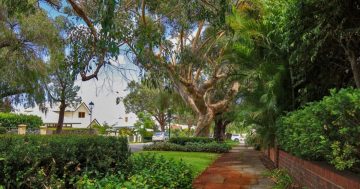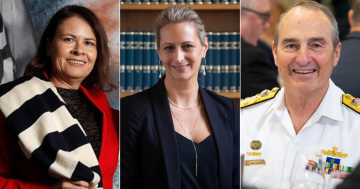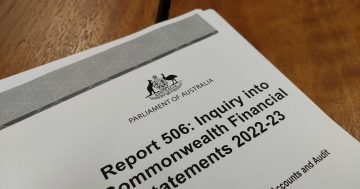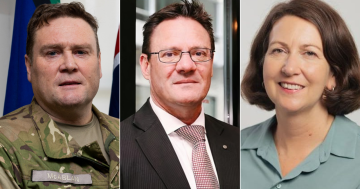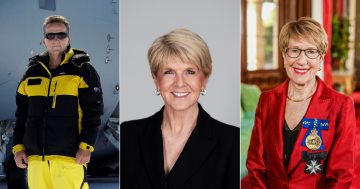 1. This week 10 years ago, the National Library of Australia was given sweeping new powers to collect and catalogue digital and web-based publications and content as part of the new Creative Australia policy.
1. This week 10 years ago, the National Library of Australia was given sweeping new powers to collect and catalogue digital and web-based publications and content as part of the new Creative Australia policy.
Minister for the Arts, Simon Crean and Attorney-General, Mark Dreyfus said the Copyright Act 1968 would be amended to cover digitally published material in addition to the library’s current print-based legal deposit arrangements.
Mr Dreyfus said to future-proof published cultural heritage, it needed to be captured it in all its forms and the Government would also work to develop a new legal deposit scheme for the National Film and Sound Archive to collect and preserve Australian audiovisual material.
2. Minister for Environment, Tony Burke said divers from the Association of Marine Park Tourism Operators had culled more than 60,000 coral-eating crown-of-thorns starfish between Lizard Island and Cairns, as well as pockets in the Whitsunday in a $1.43 million project that began in August 2012.
Mr Burke said the starfish were one of the main culprits behind a serious decline in coral cover.
“These starfish occur naturally, but pollution and runoff can lead to an explosion in their numbers,” Mr Burke said.
He said in the long term the work of reef rescue was ensuring that runoff and pollution into the reef reduced every year.
3. In Victoria, new legislation was introduced to Parliament to give mothers who were forced to relinquish their babies for adoption the right to know more about their adult children.
Minister for Community Services, Mary Wooldridge said the amendment to the Adoption Act 1984 would allow birth parents who relinquished babies for adoption before 1984 to receive information about their adult children, including the child’s name after adoption and the name and address of the adoptive parents at the time of the adoption.
“The Government believes it is a basic right for a mother to know the name of her child and we recognise that this change is something that has been sought for decades by the adoption community,” Ms Wooldridge said.
4. Also in Victoria, the Deputy Secretary of Innovation and Technology for the Department of Business and Innovation, Grantly Mailes was appointed the State’s first Chief Technology Advocate.
Minister for Technology, Gordon Rich-Phillips said the role would have responsibility for the delivery of the Government’s new ICT strategy, providing direction and coordination in information management and technology within the Victorian Government.
“Mr Mailes will initially focus on delivering better services, reducing waste, encouraging innovation and improving ICT procurement across government,” Mr Rich-Phillips said.
5. The Defence Industries Queensland (DIQ) unit was launched and a defence envoy appointed to boost the State’s defence sector and attract more investment.
Premier, Campbell Newman said Queensland was home to one-quarter of Australian Defence Force military personnel and had a 26 per cent share of national defence industry activity.
“DIQ’s approach will be shaped by future defence strategies and long-term procurement needs, growing a globally competitive industry,” Mr Newman said.
“This appointment will lift the strategic profile of Queensland’s defence capability and boost growth in the defence sector.”
6. And a decade ago in South Australia, historic amendments to the State’s Constitution passed through the House of Assembly, formally recognising Aboriginal people.
Premier, Jay Weatherill said when the province of South Australia was established in 1836, there was no recognition of, consultation with or authorisation from Aboriginal people, nor was this rectified when the Constitution passed almost 100 years later.
He said the amendment included a statement of acknowledgement and respect that recorded the Apology to the Stolen Generations given in Parliament on 28 May 1997; acknowledged and respected Aboriginal peoples as the State’s first peoples and nations; and recognised Aboriginal peoples as traditional owners and occupants of the land and waters in South Australia.
“This Bill will correct the record and give hope to Aboriginal South Australians,” Mr Weatherill said.


